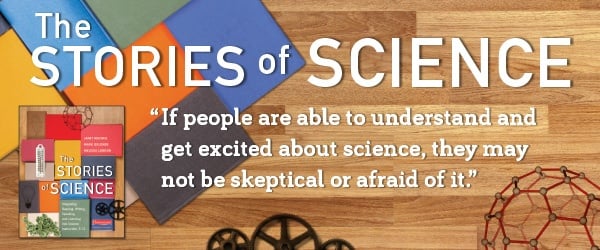
The Following is adapted from The Stories of Science: Integrating Reading, Writing, Speaking and Listening into Science Instruction, 6--12 by Janet MacNeil, Mark Goldner, and Melissa London.
Inquiry science entices students to think deeply about what they’re observing and to ask questions. How do we help students develop and deepen those questions as the core of their science stories? One effective way to do this is by facilitating student-to-student discussions, giving them the time and space to explore their ideas and to probe each other’s thinking.
Imagine a whole-class discussion where the teacher removes himself or herself from the conversation and allows the talk to happen exclusively between the students. We call this wholeclass student-to-student talk science talk (based on the work of Karen Worth et al. [2009]). In a science talk, the teacher says very little, the students do not raise their hands, and the students have an informal, flexible academic discussion. With practice over time, students learn how to participate thoughtfully in a way that draws out questions, misunderstandings, and new ideas.
The teacher is not center stage during a science talk; the students are. Accordingly, the teacher acts as a facilitator, stepping in only when students are not following the science talk norms or to interject an additional question to guide the conversation when needed. The teacher can also model the type of questions that will improve the quality of discourse: “What is your evidence for that?” “How do you know that is true?” or “Could you explain that idea again?” Misconceptions will surface, but this is generally not the time to correct them.
In order to get students to the point where they can successfully participate in a science talk, we need to:
-
Have a purpose, a plan, and a targeted focus question for each science talk. Why are we doing this science talk? What ideas do we want students to share? What is the key topic that we want them to explore?
-
Actively involve students in setting norms to identify group expectations, and refer back to these norms repeatedly to check in: “Are we meeting our norms?” “What did we do well?” “What do we need to work on next time?” Feel free to refer to the norms and remind students of appropriate behavior during the talk if a student is acting inappropriately.
-
Make sure students are aware that learning how to participate effectively in a discussion is an important skill. Learning to speak and listen effectively is as important as learning to write effectively.
♦ ♦ ♦
For more information on setting up for successful science talks, and how to bring The Stories of Science into your classroom, visit Heinemann.com



